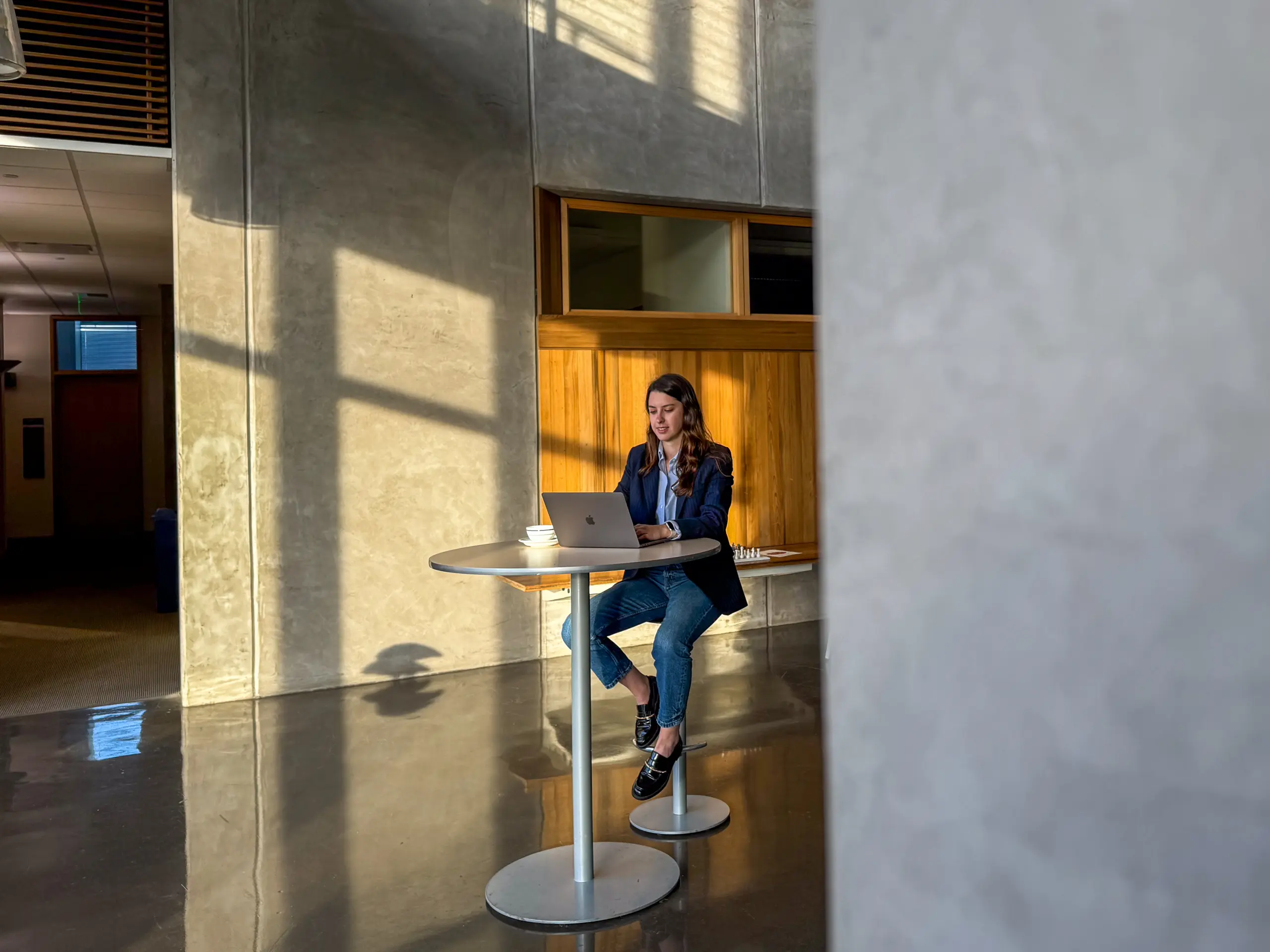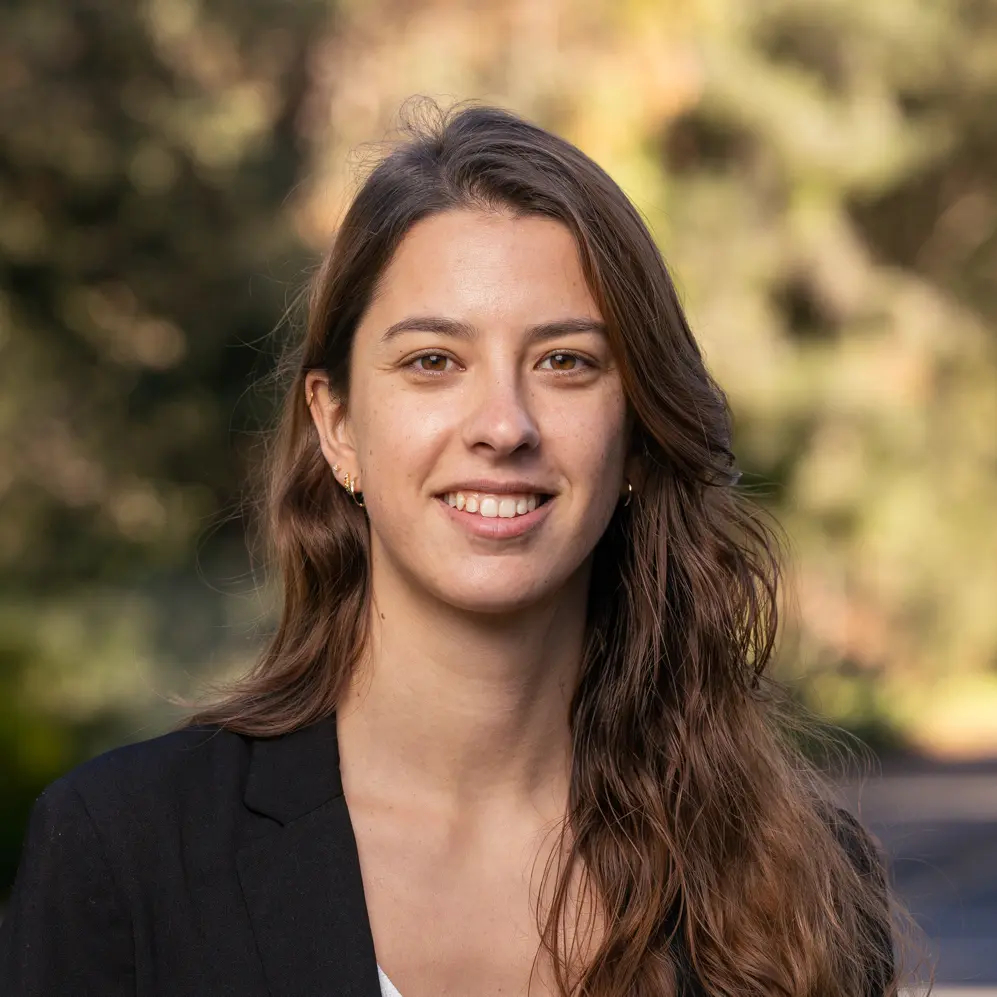
Since my childhood, I’ve been captivated by the profound impact of food on people’s lives, its connection to culture, and its influence on health. My Spanish heritage played a significant role in shaping this fascination, with its rich gastronomy and robust agricultural traditions. Growing up, I experienced firsthand what it takes to produce food, coming from a family of farmers. Additionally, the daily preparation of exquisite homemade meals to eat all together was regarded as a sacred moment. From a young age, I became very curious about the science behind farming and cooking, which inspired me to pursue a degree in food and agricultural engineering, driven by a desire to contribute to the advancement of the food industry. Throughout my journey, innovation has been a driving force, as I continually seek opportunities to learn about new technologies, consumer needs and behaviors, and how science and engineering drive improvement in this field.
For my PhD, I decided to focus my research on the evolution of new and existing technologies to leverage my engineering background and help understand full processes to give better advice on how to improve and optimize them. Specifically, I evaluate technologies from environmental and economic points of view, performing Life Cycle Assessment and Technoeconomic Analyses, respectively. In these assessments, my work ranges from process modeling and scale-up to commercial/industrial comparisons. However, while I focused on addressing technical questions, I recognized a gap in my understanding of the business aspects—why some technologies succeed in entering a market while others don’t, what makes a project investible, and how academic ideas transition to the market.
Over the past 7 months, I’ve had the privilege of being part of the Barnstorm Foundry team—an incubator managed by Cornucopian Capital. Their mission revolves around identifying academic research with commercialization potential and guiding founders from ideation to market realization. From the beginning, I realized that there was a clear alignment between my research and Barnstorm’s approach. While I focused on the technical evaluation, their expertise was on the commercial evaluation for technology. Then, my expertise was very valuable, while the Barnstorm team had the focus and knowledge I was lacking, and I was looking to gain in this experience.
During my fellowship, I was part of three projects that ranged from a novel vitamin supplement delivery system to cutting-edge technologies in protein synthesis measurement and coffee processing. For each project, I had the opportunity to get my hands dirty and learn valuable business insights through market research, technology evaluation, business model development, expert interviews (these were incredibly insightful and valuable!), FDA approval planning, and research on consumer preferences. Considering the unique nature of each project, I was able to immerse myself in three very different sectors and markets, including pharmaceuticals, health and wellness, and food. Working on these three projects was extremely insightful to understand how academic research from our own UC Davis campus is of interest and can be commercialized. Additionally, I can now pair my technical expertise with business innovation knowledge to perform more complete technology evaluations, including on one of my PhD projects, which is in collaboration with a startup that is exploring entering the market.
In addition to working alongside Barnstorm’s team, I had the opportunity to attend in-person meetings, panels, and conferences, gaining direct insights into markets, identifying trends, and witnessing innovative projects from other companies. I attended conferences related to the projects that I was working on, but also others that could give me a broader understanding of the innovation happening in the food and health sectors. Back in October 2023, I attended HLTH, a conference focused on health innovation, where I had the goal to identify possible partners and competitors, as well as consumer interest for the protein synthesis technology. Later, in April 2024, I attended the Specialty Coffee Expo to explore market opportunities for the coffee technology we are working on. This exposure not only broadened my understanding but also expanded my professional network, connecting me with individuals who could assist in current projects and potentially unlock future career opportunities.
This fellowship has given me invaluable insights into both the commercialization process of academic research and the essential considerations for launching a successful company or entering a market. I’d like to emphasize three key elements crucial for turning an idea into a thriving business: first, the idea must target a market large enough to attract investment; second, a deep understanding of consumers is essential; and third, tapping into and leveraging the expertise of industry professionals is immensely valuable. Additionally, building a strong network opens doors to numerous opportunities, while effectively communicating thorough research findings is highly prized. Moreover, I’ve realized that a PhD experience extends beyond academia, offering unique perspectives and adaptable skill sets that are applicable in diverse fields, including incubation and venture capitalism.
Regarding my next career steps, my immediate goal is to complete my PhD dissertation. Next, I aim to find a position in the business or industrial sector, or at their intersection, where I can effectively utilize both my expertise in Life Cycle Assessment and business development. I am eager to apply my skills and knowledge in a practical setting, contributing to the advancement of industry through innovation and business practices.
I am extremely grateful for the opportunity and want to thank the Barnstorm and Cornucopian team, particularly Aryeh Ganz, Matt Dittrich, William Zhang, and Lucas Haskins. Special thanks to my PIs Chris Simmons and Alissa Kendall for their unwavering support and guidance. I also want to express my gratitude to the Innovation Institute for Food and Health, especially Dana Armstrong and Justin Siegel, and my IIFH cohort, Amber Flores, and Tarini Naravane, for sharing this enriching experience with me. I look forward to future opportunities to collaborate with each of you and help advance the food and health sectors!
